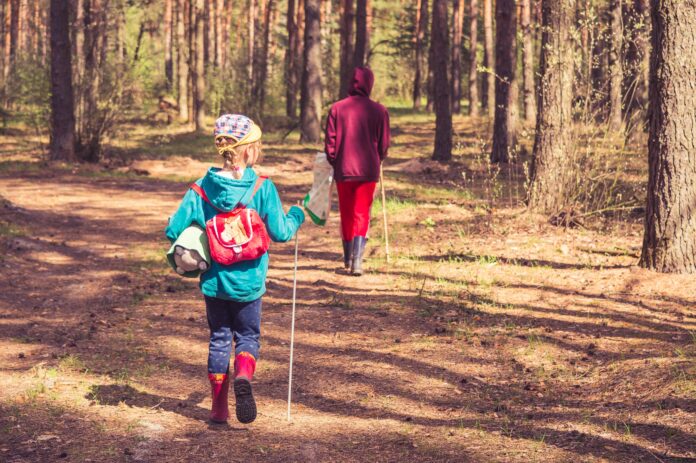This article explores the relationship between contact with nature in childhood and adult personality. An international sample of 783 participants from 42 countries reported on their frequency of contact with specific natural environments in childhood and adulthood, and completed measures of adult personality and sociodemographic details. Multivariate regression, canonical correlations, and least-squares path analyses were employed to identify relationships between variables. Contact with nature in childhood predicted higher Openness and lower Neuroticism. In particular, more frequent contact with forest environments in childhood was
correlated with facets of Openness (Creative Imagination, Intellectual Curiosity) and Neuroticism (Anxiety, Depression). Mediation analyses indicated that engaging in contact with nature in childhood may represent a learned emotional regulation strategy that results in lower Neuroticism when continued in adulthood, while natural environments may be an ideal environment for creative play in childhood that predicts higher Openness in adulthood. This study makes a contribution to the field by describing the impact, and possible mechanisms, of
contact with natural environments in childhood on adult interpersonal behaviours, which may assist in the design of environments that are best suited for restoration and play.
Notes
“In response to the first hypothesis, the study found that the frequency of contact with nature in
childhood predicted adult personality, including Neuroticism and
Openness, even after controlling for standard demographic variables. In
response to the second hypothesis, it was found that the frequency of
contact with temperate forest environments in particular, predicted
lower Anxiety and Emotional Volatility, as well as higher Intellectual
Curiosity and Creative Imagination. In response to the final hypothesis,
the study found that contact with temperate forest environments in
childhood predicted facets of Neuroticism indirectly through adult
contact with the same environments, while facets of Openness were
predicted directly.”
Neuroticism is the trait disposition to experience negative affects, including anger, anxiety, self‐consciousness, irritability, emotional instability, and depression1. Persons with elevated levels of neuroticism respond poorly to environmental stress, interpret ordinary situations as threatening, and can experience minor frustrations as hopelessly overwhelming
“Findings relating to Openness, particularly Intellectual Curiosity and
Creative Imagination is consistent with some of the more recent theory
and research regarding the relationship between attention restoration and
creativity, which suggests that contact with natural environments promotes fascination and mind-wandering processes that allow individuals to develop creative solutions.”
“Some studies suggest that children engage in
more creative play in environments with greater vegetation (Taylor
et al., 1998) and forest environments specifically (Ridgers et al., 2012;
Streelasky, 2019).” (Is it related to role play and imagination? Less toys – more abstract scenarios?)
Can contact with nature in adulthood also stimulate creativity?
Reference
Snell, T. L., Simmonds, J. G., & Klein, L. M. (2020). Exploring the impact of contact with nature in childhood on adult personality. Urban Forestry & Urban Greening, 55, 126864. doi:10.1016/j.ufug.2020.126864
Widiger TA, Oltmanns JR. Neuroticism is a fundamental domain of personality with enormous public health implications. World Psychiatry. 2017 Jun;16(2):144-145. doi: 10.1002/wps.20411. PMID: 28498583; PMCID: PMC5428182.




